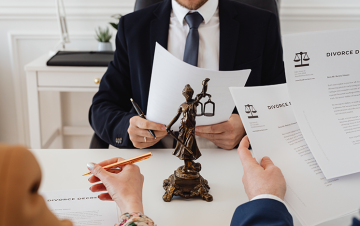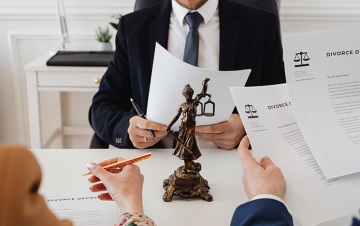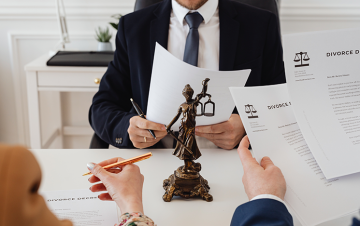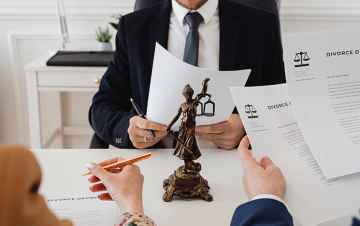How to obtain child custody?
Obtaining guardianship over a child is a responsible and important process that ensures the protection of the rights and interests of a child left without parental care. The reasons for the need for guardianship may vary: the loss of parents, their absence or inability to fulfil their duties. To become an official guardian, you need to comply with legal requirements and go through several stages of registration.
When do I need to apply for guardianship?
Guardianship is an important legal step that allows you to provide protection and care for a child in difficult life circumstances. This may be necessary in the event of the loss of parents, their inability to fulfil parental responsibilities or for other reasons that threaten the child's well-being. Arrange care may be necessary in the following cases:
- Loss of parents. If both parents have died, the child needs new legal representatives.
- Deprivation of parental rights. In situations where parents are deprived of their rights due to failure to fulfil their duties or violation of the law.
- Absence of parents. If the parents are abroad, on long business trips, or cannot take care of the child due to circumstances beyond their control.
- Parental health status. If there are grounds to arrange care for parents, the parents themselves will not be able to provide the child with full care.
- Refusal to perform duties. When parents leave their child unattended, they do not fulfil their duties and do not meet their needs.
The establishment of a guardianship not only helps to provide the child with the necessary conditions for life, but also makes it possible to protect his or her rights in the legal field. Each of these cases requires a professional approach and careful preparation of documents.
Stages of obtaining guardianship
The process of obtaining guardianship consists of several legal and organisational stages, each of which requires accuracy and compliance with all legal requirements. Careful preparation will help to avoid delays and possible rejections, ensuring that the child is properly protected.
- Applying to the guardianship and custody authority. The first step is to submit an application to the local guardianship and custody authority. In the application, you should state the reason why you want to become a guardian and attach supporting documents.
- Collecting documents. You need to prepare a package of certain documents to successfully obtain custody of a child (see the section below for a detailed list).
- Checking the living conditions. The guardianship and custody authority conducts an inspection of the applicant's living conditions, checking whether they meet the requirements for a comfortable life for the child.
- Consideration of the application by the guardianship authority. At this stage, the guardianship authority analyses the submitted documents, interviews the applicant and, if necessary, witnesses.
- Court decision (if necessary). In the event of disputes or objections from other persons, the matter is referred to the court, which makes the final decision on the appointment of a guardian.
- Registration of the guardianship. After obtaining the permit, you will be issued a document confirming your status as a child's guardian.
These stages ensure the legitimacy of the procedure and avoid violations of the rights of the child or other stakeholders. Professional assistance of a lawyer can greatly simplify the passage of each stage.
Documents required for registration
Preparation of documents is one of the most important stages of guardianship. Compliance of the documents with the requirements of the guardianship and custody authorities is the key to the successful completion of the procedure.
- Application to the guardianship and custody authority.
- A copy of the applicant's passport.
- A health certificate.
- Certificate of no criminal record.
- Documents confirming financial solvency (income statement, bank statements).
- Documents for housing.
- Confirmation of the absence or inability of the parents to fulfil their responsibilities.
Each document must be prepared in compliance with the established requirements. If necessary, additional documents may be requested by the guardianship authorities.
Basic rights and obligations of a guardian
After the guardianship is established, the guardian receives a number of rights and obligations aimed at ensuring the welfare and protection of the child. The guardian is entitled to represent the child in all legal, social and other matters and is obliged to
- Provide proper care and upbringing of the child.
- Organise the child's education, treatment and provide for all his or her needs.
- Not to use the guardianship for their own benefit or to harm the child.
Compliance with these rules ensures the well-being of the child and protects the interests of the guardian within the law.
Important questions about arrange guardianship for a child:
Question
Can I arrange care for a child up to 6 years old if I do not have my own home?
Answer
Yes, but you need to prove that the child will have adequate living conditions, even if the housing is rented.
Question
How long does it take to become a guardian?
Answer
The duration of the procedure depends on the complexity of the situation, but usually takes from one to three months.
Legal assistance from the ‘Consultant’:
Preparation of documents. A lawyer will provide full legal support, check all documents and help you avoid mistakes.
Representation in court. A lawyer will protect your interests in case of disputes or litigation.
Legal advice. The specialist will provide clear recommendations on your rights and obligations.
Process control. The lawyer will ensure that all stages of the procedure are carried out in accordance with the law and without delay.
Experienced lawyers of the legal service ‘Consultant’ will help you to arrange child care quickly and without unnecessary hassle. Contact us for a free consultation so that we can help you understand your rights and find the best solution to your situation.
Obtaining custody of a child is a complicated but necessary process to ensure his or her rights and well-being. Consulting an experienced lawyer will help you avoid mistakes, save time and guarantee a positive outcome.



































